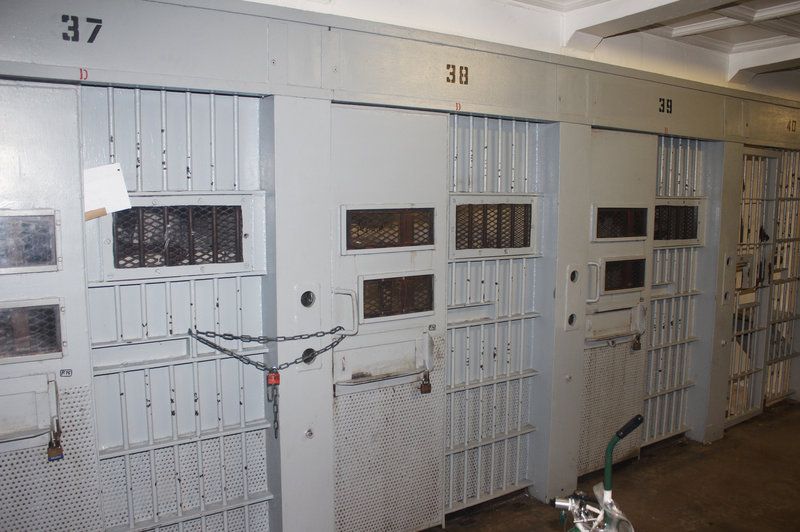The Illinois Department of Corrections recently published proposed regulations which take some important steps towards reducing the harm done to those held in solitary confinement in Illinois prisons. However, the regulations continue to allow solitary far in excess of the 15-day maximum permitted under international law, and fail to address many of the inhumane conditions in Illinois’ solitary cells.
People are allowed to email comments until August 15, 2016. If enough people file objections, then the Department of Corrections will have to hold public hearings. Illinois prisoners need as many people to submit comments as possible! Comments can be emailed to echo.beekman@doc.illinois.gov.
The following are the points UPLC feels are particularly problematic. You can write your own thoughts, or just copy and paste some or all of the below into your email.
Regulations Do Not Apply to Most People in Solitary
The proposed regulations only apply to a status known as “disciplinary segregation,” and to a small number of people in a status known as “Administrative Detention.” The regulations completely exclude most people of the 8,000 people Illinois holds in solitary, usually with no allegation of wrongdoing, no right to a hearing, no date for them to be released from solitary, and no path for them to follow to win release from solitary. The regulations should cover anyone locked up for more than 20 hours a day, regardless of what IDOC calls it.
Length of Time in Solitary
We applaud the elimination of all segregation sentences for people who violate minor rules (the 300 and 400 series of rule violations), and the reduction of most segregation terms (with the exception of “fighting, where the segregation term was INCREASED from one month to three months). However, the segregation sentences which are still permitted under the proposed regulations remain excessive, and the conditions in Illinois segregation units remain intolerable. Under international standards, keeping people in isolated confinement for more than 15 days is torture. In contrast, virtually every segregation term in the revised regulations EXCEEDS this 15-day maximum, and thus allows thousands of Illinois residents to be tortured every year. This torture serves no purpose, and risks causing permanent harm to people’s health and well-being. Illinois should not be torturing anyone.
Conditions in Solitary
The proposed regulations fail to address the dangerous conditions prisoners face in many segregation units in Illinois:
• Currently, most prisoners in solitary are kept in their cells more than 23 hours most days. The proposed
regulations continue this outrage. Section 504.670(a) provides for only five hours a week out of cell, and
allows that time to be divided over only two days. This means that 5 days a week, prisoners will NEVER leave
their cells.
• While Section 504.60(c) requires that all segregation cells have “visual access to natural light” and be
provided with “ventilation consistent with the climate;” these terms are not defined. Most of the segregation
cells in Illinois are located at Pontiac, Menard, and Stateville. Stateville, the newest of these prisons, was
completed in the 1920s. Conditions in these ancient prisons are appalling. The regulations should mandate:
• Natural light. Hundreds of segregation cells in Illinois have solid doors, and no windows; however, they
appear to comply with the proposed regulations because they have a small “observation window.” This
window provides no natural light in the cell. Cells should have sufficient natural light to allow for
reading.
• Air circulation sufficient to maintain health. The regulations should also specify an exchange rate
consistent with the nationally recognized building code standards.
• 50 square feet of floor space per person. Most of Illinois’ segregation cells do not comply with the state-
mandated 50 square feet of floor space per person (currently, many cells have less than ½ of that). The
regulations make no attempt to conform the regulations to the law.
Procedures for Sentencing People to Solitary
The proposed regulations fail to ensure that people are provided with meaningful hearings before being sent to segregation.
• Section 504.80(c) of the proposed regulations only requires that exculpatory evidence be disclosed to the
prisoner facing discipline, and allows that evidence to be disclosed at the hearing itself. The regulations should
be rewritten to require disclosure of all relevant evidence (absent security threats) at least 48 hours before
the hearing, including both inculpatory and exculpatory evidence.
• Nothing in the proposed regulations requires the Adjustment Committee to review video tape of an incident
(where it exists). In addition, absent security concerns, the person facing segregation must be allowed an
opportunity to comment.
• Section 504.60(b) of the proposed regulations requires that a mental health professional review the RECORDS
of any seriously mentally ill person facing solitary. However, it does not require that they do a CURRENT
assessment. In many cases, what leads to alleged misconduct is a rapid and sudden deterioration in a
person’s mental condition (g., a schizophrenic break or a period of mania in a person suffering from Bipolar
Disorder). The regulations should be amended to require a review of past records and a current assessment
of the mental status of any person facing solitary.
• Section 504.80(h) of the proposed regulations permit, but do not require, that mental health professionals be
consulted by the Adjustment Committee, even where a mental health professional has determined that a
prisoner is seriously mentally ill, and that mental illness was related to the alleged misconduct. The
proposed regulations should be amended to bar placement in solitary of anyone with a serious mental illness,
people with developmental disabilities, minors, and those who are pregnant. At minimum, mental health
professionals should be consulted in person by the Adjustment Committee EVERY time a prisoner is facing
solitary.
• Sections 504.80(k) and 504.80(m)(1)(B)(i) both allow consideration of the results of “Voice Stress Analysis” to be
used in imposing discipline. However, studies done for the S. Department of Justiceand National Institute of Justice have established that Voice Stress Analysis is less accurate than flipping a coin. It should never be used as a reason to send someone to solitary.
Grievance Process
Section 504.810(d)(3) of the proposed regulations imposes a new restriction on use of the grievance process if a prisoner wants to challenge placement in solitary. For the first time, a prisoner who receives any help completing a grievance form must list the name of everyone who helped him on the grievance. This will have a severe chilling effect on people’s willingness to help each other navigate the convoluted grievance process created by the Department of Corrections. The new requirement should be eliminated.
Remember to send your comments to echo.beekman@doc.illinois.gov before August 15!

